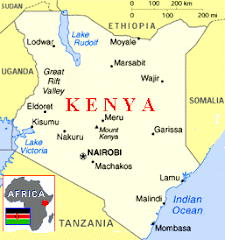A programme launched by the British  government in 2004 to reduce the number of teenage pregnancies in the UK has had the opposite effect, a study published in the British Medical Journal shows. Young girls who followed the programme were nearly three times as likely to become pregnant, about 1.75 times more likely to have sex and also more likely to expect to be a teenage parent. The only good news is that the government is going to ditch the programme.
government in 2004 to reduce the number of teenage pregnancies in the UK has had the opposite effect, a study published in the British Medical Journal shows. Young girls who followed the programme were nearly three times as likely to become pregnant, about 1.75 times more likely to have sex and also more likely to expect to be a teenage parent. The only good news is that the government is going to ditch the programme.
A senior government member, Harriet Harman, stressed that the programme was only a pilot scheme and there was no “dishonour” in experimenting with different solutions to the “complex” problem of teenage sex and pregnancy -- even if it did cost £5.9 million to the end of 2007. Everyone wanted to see a fall in the number of teenage pregnancies (Britain has the highest rate in Europe), said Mrs Harman, adding:
"This is to do with good sex education, this is to do with contraception, this is to do with girls having aspirations for something beyond an early pregnancy...it also involves responsibility on boys as well. This was a pilot scheme and the point is it was an experiment that was tried out. That is the whole point of a pilot scheme -- to find out if something works.”
The one thing it never occurs to the British authorities to “try out”, apparently, is to educate young people not to have sex at all. The failed programme (Carrera) was borrowed from the United States where it is said to have been a success in reducing pregnancies and alcohol and cannabis abuse among at risk teens. Why not borrow that other good American idea -- abstinence education? In spite of the fact that the “safer sex” brigade in the US didn’t like it, teenage sexual activity and pregnancies declined dramatically during the years that “abstinence only” education was being pushed by the federal government.
Perhaps the key statistic from the British pilot scheme is the percentage of girls (they were between 13 and 15 years of age) who expected to become teenage parents: 34 per cent in the programme group and 24 per cent in the control group. This is what the government is up against in trying to “reduce” teenage pregnancies (without reducing sex itself): many girls, especially from culturally deprived backgrounds, actually want to have a baby. It seems to be a lifestyle choice.
Why? Perhaps their own mothers did it and managed to get by with a council house and welfare payments. Perhaps the career path looks too much like hard work. Perhaps they fondly think their lives will suddenly be transformed into a version of their favourite celebrity’s lifestyle --the one that’s just added a baby to her accomplishments.
And really, one doesn’t have to go further than the popular media to find encouragement for teenage sex. The Daily Mail has an article on fiction aimed at teenagers that makes you wonder why the authors are not behind bars. It’s an eye-opener, but be warned, it will make you sick and angry -- in that order.
If the government thinks it can control the consequences of all this with condoms, it is dreaming.
By: Carolyn Moynihan ![]()




No comments:
Post a Comment